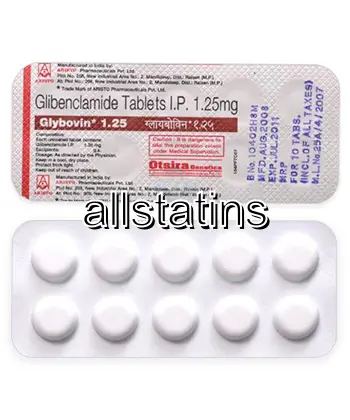| Package | Dosage | Price | Price per Dose | |
|---|---|---|---|---|
| Dosage: 2,5mg | ||||
| 360 pill | 2,5mg | AUD467.80 | AUD1.30 | |
| 180 pill | 2,5mg | AUD251.68 | AUD1.40 | |
| 120 pill | 2,5mg | AUD180.49 | AUD1.50 | |
| 90 pill | 2,5mg | AUD147.44 | AUD1.63 | |
| 60 pill | 2,5mg | AUD106.76 | AUD1.78 | |
| 30 pill | 2,5mg | AUD63.54 | AUD2.11 | |
| Dosage: 5mg | ||||
| 360 pill | 5mg | AUD411.86 | AUD1.14 | |
| 180 pill | 5mg | AUD238.97 | AUD1.32 | |
| 120 pill | 5mg | AUD167.78 | AUD1.40 | |
| 90 pill | 5mg | AUD132.19 | AUD1.47 | |
| 60 pill | 5mg | AUD91.51 | AUD1.53 | |
| 30 pill | 5mg | AUD53.37 | AUD1.78 | |

Glibenclamide Description
Introduction to Glibenclamide
Glibenclamide, also known as glyburide in some regions, is a widely used medication for managing type 2 diabetes. It belongs to the class of sulfonylureas, which work by stimulating the pancreas to produce more insulin. Proper use of Glibenclamide can help control blood sugar levels, reducing the risk of complications associated with diabetes such as nerve damage, kidney damage, and cardiovascular problems.
How Does Glibenclamide Work?
The medication acts by binding to specific receptors on pancreatic beta cells. This interaction stimulates insulin secretion regardless of blood glucose levels, leading to lowered blood sugar. Glibenclamide's effectiveness depends on the remaining beta cell function, which means it is most suitable for patients with some insulin-producing capacity. Its long duration of action allows for once or twice daily dosing, which is convenient for many patients.
Effectiveness and Benefits
Many users report that Glibenclamide effectively reduces fasting blood glucose and postprandial glucose levels. It can improve quality of life for those managing diabetes by helping to maintain more stable blood sugar levels and reducing symptoms such as excessive thirst, frequent urination, and fatigue. When combined with a proper diet and regular exercise, it can be a powerful tool in comprehensive diabetes management.
Potential Side Effects
Despite its benefits, Glibenclamide may cause side effects in some users. Common adverse effects include hypoglycemia, which can range from mild to severe and requires immediate attention. Other side effects may include weight gain, nausea, or gastrointestinal discomfort. Rare but serious reactions include allergic skin reactions or blood disorders. Patients are advised to monitor their blood sugar regularly and report any unusual symptoms to their healthcare provider.
Precautions and Considerations
Glibenclamide is not suitable for everyone. Patients with allergy to sulfonylureas, severe liver or kidney disease, or pregnant and breastfeeding women should avoid its use unless prescribed and supervised by a healthcare professional. It is crucial to inform your doctor about all medications you are taking, as Glibenclamide can interact with other drugs, such as blood thinners or certain antibiotics, increasing the risk of adverse effects.
Usage Guidelines
Proper dosing is essential to maximize benefits and minimize risks. Typically, Glibenclamide is taken once or twice daily with meals to reduce gastrointestinal discomfort and hypoglycemia risk. It is important to follow the prescribed dosage and not to adjust it without medical consultation. Regular blood glucose monitoring helps to ensure the medication's effectiveness and safety.
Storage and Availability
Glibenclamide should be stored in a cool, dry place away from direct sunlight and out of reach of children. It is widely available in pharmacies with a valid prescription. Patients should obtain it only through legitimate sources to ensure product quality and authenticity. Always adhere to the prescribed schedule and consult your healthcare provider for any questions or concerns regarding its use.